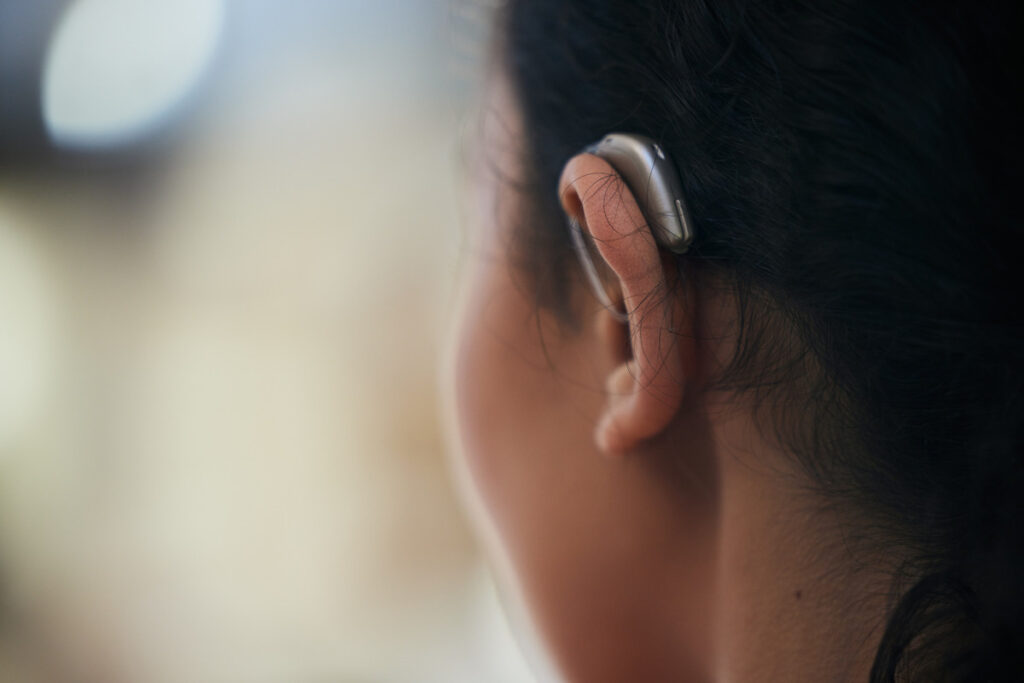Can hearing aids make tinnitus worse?
For many individuals suffering from tinnitus, the thought of using hearing aids can raise concerns about whether these devices could actually exacerbate the ringing or buzzing sounds in their ears.
While hearing aids are generally beneficial for people with hearing loss, they can have varying effects on tinnitus symptoms.
This article explores how hearing aids can influence tinnitus, whether they can make symptoms worse, and how you can determine the right approach to managing both hearing loss and tinnitus.
Can Hearing Aids Make Tinnitus Worse?
In some cases, hearing aids can make tinnitus worse, especially if they amplify the tinnitus sound itself.
For people with severe tinnitus, certain hearing aids might not be properly adjusted to minimize the perception of tinnitus and could inadvertently make the sound more pronounced.
When a hearing aid is turned up too loud or not properly programmed, it may inadvertently amplify the tinnitus, making it more noticeable.
For individuals who suffer from hearing loss and tinnitus simultaneously, the volume amplification designed to help hearing loss may make the underlying tinnitus more noticeable in certain situations.
This phenomenon can be especially frustrating for those who have had tinnitus for many years, as their symptoms may seem aggravated by hearing aid use.
Additionally, hearing aids can cause discomfort or a sensation of fullness in the ears, which may exacerbate the perception of tinnitus in some individuals.
However, these issues can often be minimized with proper fitting, adjustment, and consultation with an audiologist.
How Hearing Aids Can Help Tinnitus
Despite the potential for worsening symptoms in some cases, hearing aids are often beneficial for individuals with tinnitus.
For many people, the use of hearing aids can significantly improve the perception of external sounds, reducing the contrast between external sounds and tinnitus.
By amplifying ambient sounds and improving the ability to hear, hearing aids help the brain focus less on the tinnitus sound, making it less noticeable.
In fact, many individuals with both tinnitus and hearing loss experience reduced tinnitus symptoms as the hearing aid provides greater access to environmental sounds, which helps mask the tinnitus sound.
Furthermore, modern hearing aids often come equipped with tinnitus masking features that can help reduce the perception of ringing or buzzing in the ears by introducing a steady, neutral sound into the background.
This feature can be particularly effective for people who experience constant tinnitus sounds, providing them with relief and reducing the emotional stress associated with the condition.
The Role of Masking in Hearing Aids
Masking is one of the key features of hearing aids that can be especially helpful for those with tinnitus.
Hearing aids designed for tinnitus sufferers often have a masking function that plays a soft, soothing sound to cover up the tinnitus noise.
This masking sound can be customized based on the user’s needs, helping to drown out the irritating noise of tinnitus and make it less noticeable.
By providing a steady external sound, such as white noise or soft tones, the hearing aid can help the brain focus less on the internal ringing and reduce the distress caused by tinnitus.
The masking feature in hearing aids can also be fine-tuned to suit different environments, offering versatility and personalized relief for tinnitus sufferers.
For many people, this feature becomes a crucial part of their daily tinnitus management routine, providing relief and improving overall quality of life.
Why Hearing Aids May Not Always Work for Tinnitus
While hearing aids can be beneficial for many individuals, they may not always work for everyone with tinnitus.
The effectiveness of hearing aids for tinnitus depends on several factors, including the severity of the tinnitus, the specific cause of the condition, and individual responses to sound amplification.
For some people, tinnitus may not respond to masking sounds, and hearing aids may not be sufficient in masking or reducing the perception of the tinnitus.
Additionally, if tinnitus is caused by an underlying medical condition, such as an ear infection or Meniere’s disease, hearing aids may not address the root cause of the issue and might not provide relief.
In such cases, a more tailored treatment plan, including medical intervention, may be necessary to alleviate symptoms.
It’s important for individuals with tinnitus to work closely with their audiologist to determine whether hearing aids are the right solution or if other options, such as sound therapy or medication, should be explored.
When to Seek Professional Help for Tinnitus and Hearing Aids
If you are experiencing worsening tinnitus symptoms after using hearing aids, it is essential to consult with a healthcare professional.
An audiologist or ENT specialist can assess the fit and programming of your hearing aids and determine whether adjustments are needed.
They can also help identify if any other underlying health issues are contributing to your tinnitus symptoms, such as issues with the inner ear or jaw problems.
In some cases, a hearing aid may need to be recalibrated, or you may need a different type of hearing device altogether.
Tinnitus management is highly individualized, and working with a professional will ensure that you receive the most effective care possible.
Natural Supplements for Tinnitus Relief
In addition to hearing aids, there are natural ways to support tinnitus relief.
Sonus Complete is a natural supplement formulated to help alleviate tinnitus symptoms and improve ear health.
The supplement contains a blend of vitamins, minerals, and herbal ingredients that work together to support circulation and reduce inflammation, which can help mitigate tinnitus symptoms.
Ingredients like ginkgo biloba, hawthorn berry, and vitamin B12 have long been used in traditional medicine for their ability to promote healthy ear function and reduce the intensity of ringing or buzzing sounds in the ears.
Incorporating Sonus Complete into your daily routine, alongside the use of hearing aids, can help provide additional support for managing tinnitus and improving overall ear health.
If you’re struggling with tinnitus and wondering whether hearing aids are the right solution, it’s important to consult with a professional who can help you find the most effective approach.
Alongside hearing aids, Sonus Complete offers natural support for tinnitus relief, helping to reduce symptoms and promote healthy ear function.
Visit the official Sonus Complete website to learn more and take the first step toward a quieter, more comfortable life.










One Response